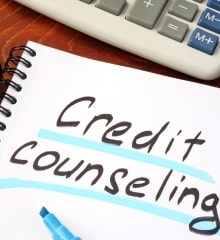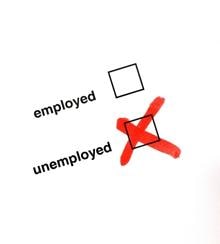Your credit score holds more power over your life than most people realize. It can open doors to better loans, lower interest rates, or slam them shut when you need help the most. And while everyone knows credit cards and missed payments can impact that score, there’s still a lot of confusion around things like bank accounts, medical debt, and collections.
So let’s clear things up. In this post, we’ll tackle five of the most common questions people ask about how everyday banking affects your credit score. Along the way, you’ll get simple, practical tips to strengthen your financial health and finally start moving forward again.
Not directly. When you open a savings account, it doesn’t get passed along to the credit bureaus. That means it won’t show up on your credit report or change your score. What lenders actually look at is how you handle things like credit cards, loans, and whether you pay them on time. Savings just aren’t part of that picture.
But here’s where it gets interesting.
Even though a savings account doesn’t affect your credit score on paper, it can make a big difference in real life. Having some cash set aside means you’re less likely to miss a payment when something unexpected hits. And the fewer missed payments you have, the better your credit score holds up.
There’s also this. When you’ve got savings to fall back on, you’re less tempted to max out your credit cards. That keeps your credit utilization low, which is a big factor in your score.
So no, your savings account won’t raise your credit score directly, but it gives you breathing room to keep everything else in good shape.

Does having multiple bank accounts affect your credit score?
No, it doesn’t. Whether you’ve got one account or several, they don’t show up on your credit report. Credit scores are based on how you handle debt, not where you store your cash.
Still, your bank accounts aren’t something to take lightly.
Some people find that splitting their money between a few accounts helps them stay more organized. You might have one for bills, one for spending, maybe even one just for emergencies. That kind of system can keep your finances clear.
But if you’re not careful, it’s easy to lose track. Too many accounts can lead to missed balances, accidental overdrafts, and more stress than it’s worth.
Now, here’s the part that can affect your credit. If an overdraft turns into unpaid fees and the bank sends that to collections, it could land on your credit report and drag your score down.
So while having multiple accounts won’t hurt your credit on its own, managing them poorly might. Keep it simple, stay on top of your balances, and avoid unnecessary complications.
Do banks check your credit score when opening an account?
Many people ask, do banks check your credit when you open an account? The answer is sometimes, but not in the way most people imagine. If you’re just opening a basic checking or savings account, most banks won’t dig deep into your credit. They might do what’s known as a soft check, which is more of a light scan. It doesn’t leave a mark on your credit report and it doesn’t change your score.
Now let’s say you also ask for overdraft protection or a credit card while setting up the account. That’s a different story. In that case, the bank might run a hard inquiry, and that can cause a small dip in your score.
But here’s something most people don’t realize. Banks often care more about your banking history than your credit score. They’ll check systems like ChexSystems or Early Warning Services to see if you’ve had bounced checks, unpaid fees, or accounts closed with negative balances.
So yes, banks might look at your credit, but what they really want to know is whether you’ve been a reliable customer in the past.
Do joint accounts affect your credit score?
A common question is, do joint accounts affect credit score? In most cases, they don’t unless they’re tied to shared debt like overdraft protection or joint credit cards. And even if they do take a look, it’s rare for that type of account to end up on your credit report. Since it’s not about borrowing money, the credit bureaus usually don’t take interest.
That said, there are situations where a joint account can still have credit consequences. If you sign up for overdraft protection that’s linked to a credit line and a payment gets missed, both account holders could see a drop in their scores. The same goes for any credit cards or loans you share. Late payments or high balances affect everyone listed on the account.
The account itself probably won’t move your credit score one way or another. But how you and your co-owner use it is what matters. If you’re both careful, it works smoothly. But if one of you slips up, you could both feel the impact. Sharing a joint account isn’t just about splitting bills. It means you’re both responsible for what happens in that account.
Before we wrap up, let’s answer another common question: what is a deposit score, and how does it affect your ability to open bank accounts?
What is a deposit account score and how does it affect your financial standing?
Ever wondered what a deposit account score is? It’s a measure of how you’ve handled your regular bank accounts. Your deposit account score doesn’t show up on your credit report, and it won’t directly affect your credit score. But banks still pay attention to it. This number tells them how you’ve handled regular bank accounts, like if you’ve had unpaid fees, bounced checks, or accounts shut down in the past.
If your score is too low, you might have trouble opening a new account. Or you could be offered fewer options, more fees, and less flexibility.
That said, this isn’t something you’re stuck with forever. You can request a copy of your ChexSystems report, go over the details, and challenge anything that looks wrong. Some banks even offer second-chance accounts to help you rebuild your history and eventually improve your credit score too.
Does medical debt affect credit score?
It can, but not right away. Medical debt only shows up on your credit report if it goes unpaid for a while and eventually gets sent to collections. Until then, it stays off the radar.
Here’s something important to know. The three major credit bureaus (Equifax, Experian, and TransUnion) give you a full year before that debt gets reported. That gives you time to sort things out, dispute a charge if it’s incorrect, or work out a payment plan.
Even better, new rules have changed how medical debt shows up on your report. Fully paid medical bills no longer appear at all. And if the unpaid balance is under 500 dollars, it won’t be included either.
So, while medical debt can hurt your score in some cases, you have time to act before it does. If you’re dealing with a hospital bill or insurance delay, don’t wait. Talk to the provider, ask about payment options, and try to resolve it before it hits collectors.
Do medical collections affect credit score?
They can, but it depends on the timing. If a medical bill goes unpaid long enough to be sent to collections, then yes, it can end up on your credit report and drag down your score. But that doesn’t happen right away.
You have a grace period. The major credit bureaus give you 12 months before any unpaid medical debt gets reported. That gives you a chance to check the bill, fix errors, or set up a payment plan.
There’s more good news too. Under newer credit reporting rules, paid medical debt doesn’t appear on your report anymore. And any unpaid medical bill under 500 dollars is now excluded completely.
So while medical collections can hurt your credit score, there’s time to get ahead of it. If something doesn’t look right, reach out early. Waiting too long could cost you more than just stress.
How to increase your credit score?
Improving your credit score doesn’t happen overnight, but it’s absolutely possible if you focus on the right habits. Here are two things you can start doing right away.
Pay your bills on time
This one is huge. Your payment history is the single biggest factor in your credit score. Even one missed bill can drag it down fast.
Set reminders, write them on the fridge, or use automatic payments. Pick whatever keeps you on track. And even if you can’t pay the full amount, try to cover at least the minimum on your credit cards and loans each month. That alone can protect your score from dropping.
Low credit balances
The next thing to watch is how much credit you’re using. This is known as credit utilization, and it plays a big role in your score.
Ideally, you want to keep your balance below 30 percent of your total limit. If you can pay everything off each month, that’s great. You could also ask for a credit limit increase to improve the ratio. Just be careful not to spend more as a result.

How can the attorneys at DebtStoppers help you?
If your credit score has taken a hit from medical debt, missed payments, or even bankruptcy, you’re not alone. The legal team at DebtStoppers has helped thousands of people in similar situations and can help you take the pressure off.
It all starts with understanding your financial situation. Instead of offering a one-size-fits-all solution, we take the time to go through your options carefully. Whether you need to stop the calls from creditors or finally get a handle on mounting debt, there’s a path forward.
For anyone looking to rebuild your credit score, support is available. That includes walking through your credit report, identifying what’s holding you back, and setting up a realistic plan for improvement. In many cases, we can also speak directly with creditors or medical providers to reduce the impact of what is already on your record.
The goal is simple. To give you clarity, control, and the tools to move forward. You can start by scheduling a free consultation to see how DebtStoppers can help you turn the page.





